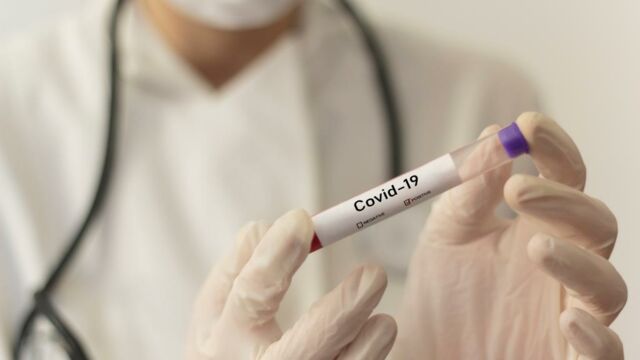Doctors battling the B.1.617.2 coronavirus variant that’s tormenting India have discovered a new potential symptom of the virus.
Discover our latest podcast
Dry mouth: a potential new COVID symptom
A year deep into the pandemic, most people now know the main symptoms to watch regarding coronavirus: a persistent cough, high fever and the loss of taste and smell. Of course, there are also lists of other common but less known or very rare symptoms of COVID including, headaches, diarrhoea and even tinnitus.
Now, doctors in Bengaluru, in India's Karnataka state, believe that suffering from an extremely dry mouth could also be a symptom of coronavirus. Irritation, itching or pain in the tongue could also be a tell-tale sign of COVID.
Dr GB Sattur revealed to local media that he had once treated a 55-year-old man with conjunctivitis and a dry mouth, who had tested positive for the virus:
Doctors should keep an eye on tongue complaints and not ignore them. The government must do more genome sequencing to understand the variants better.
Similar symptoms such as COVID tongue have already been long identified in the UK, with the virus causing inflammation and dryness in the mouth. Dr Rajeev Fernando, director of the Division of Infectious Diseases at Stony Brook Southampton Hospital, explained to Health:
Your cells contain enzymes called ACE receptors, which SARS-CoV-2, the virus that causes COVID-19, latch onto. From there, the virus gets into your cells, replicates, and makes you sick. There are a lot of ACE receptors in the tongue, so the virus concentrates very heavily in this region. In the tongue, there can be a lot of COVID. And that can lead to symptoms like tongue bumps and tongue swelling.
It has been advised that if you experience concerning symptoms in the mouth that may be linked to COVID, take a test and self-isolate.
What are the other symptoms of the Indian variant?
The Indian coronavirus variant has made its way into England and has been the cause of increased hospitalisation in areas such as Bolton.
Experts are still trying to determine just how the B.1.617.2 variant is different from the others. Still, it is understood that this strain has two mutations, which could make it more infectious than B.1.1.7, the strain that is currently dominating the country. According to figures from Public Health England, cases of the Indian variant have more than doubled in just one week, going from 520 to 1,313 cases.
Luckily, there is no evidence that the increased transmissibility of the variant makes it any more dangerous, and recent research has shown that existing coronavirus vaccines are likely to be around 97% effective against the strain.
The symptoms associated with the Indian coronavirus variant are also much the same as the original strain of the virus. Symptoms of coronavirus include:
- Cough
- Fever or chills
- Shortness of breath or difficulty breathing
- Muscle or body aches
- Sore throat
- Loss of taste or smell
- Diarrhoea
- Headache
- New fatigue
- Nausea or vomiting
- Congestion or runny nose
Lesser-known symptoms of coronavirus should also be looked out for, even if they are less likely to occur. Symptoms include:
- Gastrointestinal symptoms: Nausea, vomiting and diarrhoea
- Dry mouth or pain in the tongue
- Changes in the skin including rashes, inflammation and lesions (often found in the toes)
- Feelings of confusion or dizziness
- Eye problems such as increased discharge and watering, swollen eyelids, and enlarged blood vessels
- Blood clots
- Excessive hiccups
- Hair loss
- Hearing loss, tinnitus or sudden deafness
While England may be slowly making its way out of lockdown, coronavirus is no joke, and another wave of the virus could be just around the corner if people forget to follow safety measures. So, if you feel yourself getting sick or believe you may have symptoms of coronavirus, it’s essential to get tested and stay indoors.















